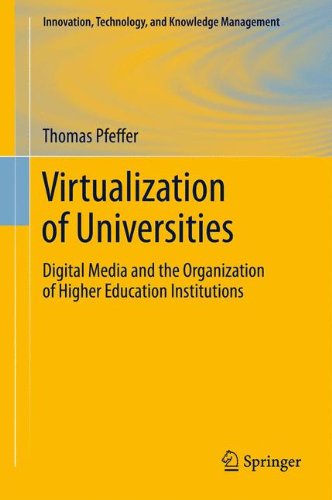

Most ebook files are in PDF format, so you can easily read them using various software such as Foxit Reader or directly on the Google Chrome browser.
Some ebook files are released by publishers in other formats such as .awz, .mobi, .epub, .fb2, etc. You may need to install specific software to read these formats on mobile/PC, such as Calibre.
Please read the tutorial at this link: https://ebookbell.com/faq
We offer FREE conversion to the popular formats you request; however, this may take some time. Therefore, right after payment, please email us, and we will try to provide the service as quickly as possible.
For some exceptional file formats or broken links (if any), please refrain from opening any disputes. Instead, email us first, and we will try to assist within a maximum of 6 hours.
EbookBell Team

4.8
94 reviewsThe purpose of this volume is to shape conceptual tools to understand the impact of new information and communication technologies (ICTs) on the organization of universities. Traditional research-based universities, the most typical representatives of the higher education system, find themselves challenged by the speed and the wide range of technical innovations, but also by a vast array of implicit assumptions and explicit promises associated with the distribution of digital media.
The author observes that as universities increasingly use digital media (computers and the Internet) to accomplish their tasks, a transformation takes place in an evolutionary rather than in a revolutionary way. Using the University of Klagenfurt as an in-depth case study, he explores such dynamic issues as how digital media affect the practice of research, the preservation and dissemination of knowledge (for example, through publishing and archiving), and delivery of education at universities. More broadly, he considers issues of organizational culture and design, administration, and leadership as universities integrate digital technologies into all aspects of their operations.